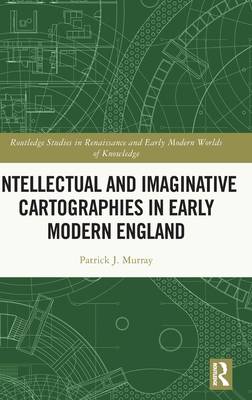
- Afhalen na 1 uur in een winkel met voorraad
- Gratis thuislevering in België vanaf € 30
- Ruim aanbod met 7 miljoen producten
- Afhalen na 1 uur in een winkel met voorraad
- Gratis thuislevering in België vanaf € 30
- Ruim aanbod met 7 miljoen producten
Intellectual and Imaginative Cartographies in Early Modern England
Patrick MurrayOmschrijving
Taking as its focus an age of transformational development in cartographic history, namely the two centuries between Columbus's arrival in the New World and the emergence of the Scientific Revolution, this study examines how maps were employed as physical and symbolic objects by thinkers, writers and artists. It surveys how early modern people used the map as an object, whether for enjoyment or political campaigning, colonial invasion or teaching in the classroom. Exploring a wide range of literature, from educational manifestoes to the plays of Marlowe and Shakespeare, it suggests that the early modern map was as diverse and various as the rich culture from which it emerged, and was imbued with a whole range of political, social, literary and personal impulses.
Intellectual and Imaginative Cartographies in Early Modern England, 1550-1700 will appeal to all those interested in the History of Cartography
Specificaties
Betrokkenen
- Auteur(s):
- Uitgeverij:
Inhoud
- Aantal bladzijden:
- 244
- Taal:
- Engels
- Reeks:
Eigenschappen
- Productcode (EAN):
- 9781032060255
- Verschijningsdatum:
- 5/08/2022
- Uitvoering:
- Hardcover
- Formaat:
- Genaaid
- Afmetingen:
- 156 mm x 234 mm
- Gewicht:
- 530 g

Alleen bij Standaard Boekhandel
Beoordelingen
We publiceren alleen reviews die voldoen aan de voorwaarden voor reviews. Bekijk onze voorwaarden voor reviews.











